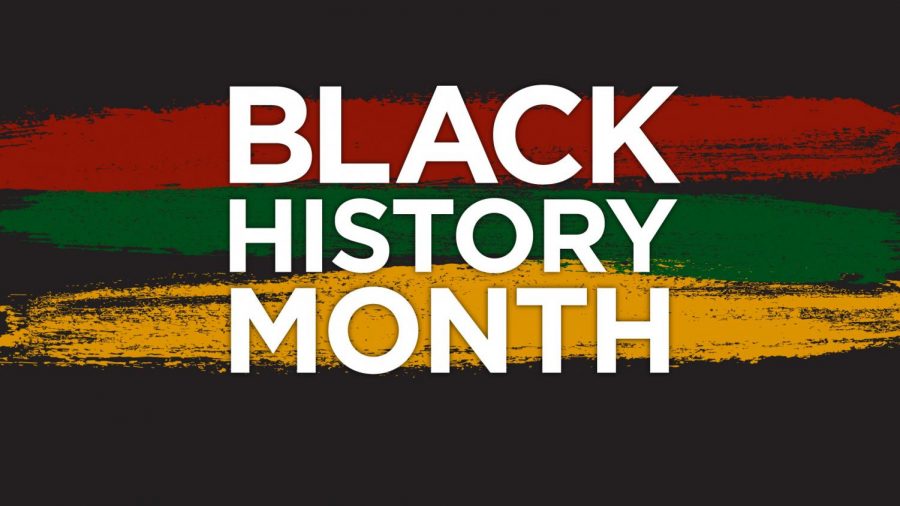February celebrates Black History Month
The month of February celebrates the historic and monumental movement known as Black History Month. Black History Month is an annual celebration of achievements by African Americans by recognizing their central role in U.S. history.
The story of Black History Month begins in 1915, half a century after the Thirteenth Amendment abolished slavery in the United States. Since 1976, every American president has designated February as Black History Month and has endorsed a specific theme. The theme for 2018 is, “African Americans in Times of War”.
This is the time for remembrance and understanding of what African American citizens fought so hard for. With compassion and solidarity their fingerprints are forever marked on American history.
Jon Hunner, Ph.D. is a history professor at New Mexico State University and has been teaching at NMSU since 1995. Dr. Hunner teaches Time Traveling through New Mexico History, Nuclear Nation, New Mexico History, US History since 1877, and much more.
“But while a reform movement like the Civil Rights movement needs strong leaders like mentioned above, the real work came from the millions of people, African Americans and other U.S. citizens, who marched, sat in segregated lunch counters, registered to vote, and fought against bigotry and prejudice to fulfill the promise of the Declaration of the United States, that all people are created equal,” Dr. Hunner said.
“Fighting for civil rights will never end and I am sorry to say it,” Dr. Hunner said. “Yes, we still have racism, violence and inequality so the gains since the 1950s and 1960s still need protection so to have prominent people use the events to remind us to be vigilance about civil rights is a good thing.”
Dr. Hunner admires African American culture, their growth in society, and their stance against pushing the envelope. He admires their perseverance since the Civil War in fighting for equal rights, sometimes at the cost of their jobs, their families, even their lives
African American slaves helped build this country. After the Civil War, freed African Americans continued to farm and build businesses and communities.
Dr. Hunner says when he teaches U.S. History, he sees the Civil Rights Movement as a success of our democracy. It was one of our most successful reform movements and while there is still more work to do for equal rights, it shows the promise of America.
Kai Williams is a senior at NMSU and is majoring in Journalism and Mass Communications with a minor in Education. His mother is Hispanic and is from Southern California, his father is African American from Philadelphia, Pennsylvania.
Williams says that Black History Month is an important month to him because it allows for his culture to look back and realize how far they have come to be a part of this country and remember the ones who really pushed for racial equality.
“This month also helps spread awareness of how far we still need to go.”
Williams grew up idolizing Malcolm X. “I’ve read his autobiography and watched plenty of movies that Malcolm played a role in and he always stood out to me.”
With his minor in Education, Williams thinks it’s a good subject for schools to teach on. “Racial inequality needs to be spoken about because racism is something that our country still suffers with so when people speak out its great because we need to keep pushing forward as a country.”
Dennis Smith is a third year and is majoring in Criminal Justice. His ethnicity is half African-American and half hispanic.
Smith has a different take on what he feels about the celebration of Black History Month and how it has effected African Americans.
“I don’t like the fact that there is a month to honor black achievements because I feel like it just divides us even more,” Smith said. “Don’t get me wrong it gets people to notice but what if there was a white history month? I bet a lot of controversy will come with that. I think every month people should just recognize the great achievements people have accomplished no matter what color they are.”
Smith thinks that schools should teach students the great achievements people have made throughout history no matter the skin color or ethnicity. He understands that that’s not how the world works and thinks there should be a change.
“I have nothing but respect for people like Martin Luther King Jr. because they had a vision of what the world could be if we all just accepted each other for who we are, not what color we were, and our backgrounds.”
Smith knows racism and inequality is still happening to this day and is upset for many reasons. He says, “The sad part about it is I don’t see change anytime soon and at this point it’s something that we are all going to have to cope with because I honestly think racism is always going to be there.”
“I love when actors or celebrities try to send positive messages to keep us all equal and spread love and positivity because I feel like that’s what we need to make all this hate and racism go away! Celebrities have a strong impact on the way people go about themselves.”
As students that attend NMSU know that we are a college of so much diversity. Students from across the globe want to become an Aggie and wear that crimson and white proudly. Eighteen years into the 21st Century and yet racism still exist. Make a change, see people by how high they keep their head up with confidence and knowledge not by the color of their skin, ethnicity, and gender.

Gianni Nicole Villegas is entering her 4th year at New Mexico State University and majoring in Secondary Education with an emphasis in history. She is...

